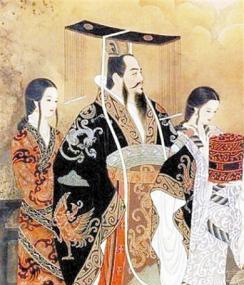What is history: it is the echo of the past to the future, the reflection of the future on the past. - Hugo
Since the Warring States period, the Xiongnu in the north have seriously threatened the Central Plains regime. During the Warring States period, Li Mu, a famous general of the Zhao State, destroyed more than 100,000 Xiongnu in the Battle of Yanmen, so that the Xiongnu did not dare to invade the south. After the Qin Dynasty unified the world, MengTian attacked the Xiongnu in the north, and the Xiongnu did not dare to go south for more than ten years. In the Han Dynasty, Liu Bang led a large army to attack the Xiongnu, but almost lost his life there, and from then on the Han Dynasty could only adopt a policy of "peace and affinity" to win over the Xiongnu. By the time of Emperor Wu of the Han Dynasty, the Han Dynasty had money in its pockets and began to fight back against the Xiongnu with all its might, and after many years of conquest, the Xiongnu were no longer able to invade the south. At the same time, the Han Dynasty also paid a heavy price: "The sea was wasted, and the household registration was halved." This price is staggering, but the number of Han troops in each attack is surprisingly small, only tens of thousands, and at most it is only 100,000 people.

It was not that Emperor Wudi of Han did not want to send hundreds of thousands of people to attack the Xiongnu at once, but it was useless. At that time, Liu Bang led an army of 400,000 to attack the invading Xiongnu cavalry, but because most of the troops were infantry, far less mobile and flexible than the Xiongnu cavalry, they had to lead a small number of troops to attack, and as a result, they were divided and surrounded by the Xiongnu cavalry at Baishan Mountain. Therefore, if you want to fight against the Xiongnu in the vast grassland, you must rely on cavalry, the Han Dynasty is an agrarian country, the number of people who were originally good at riding horses is not much, the number of people who can ride and shoot is even rarer, and the imperial court will not send all the fresh troops at once, so the number of Han troops is only tens of thousands, which is a good explanation.
Another important reason is logistics, the Han army's attack on the Xiongnu is an away battle, and the northern grassland area is vast, and the supply line of the Han army must be pulled very long. In addition, the Han Dynasty's counterattack against the Xiongnu war was the Huns running, the Han army chasing behind, the Han army to pursue the Huns, must run faster than them. Everyone rides a horse, and there are only two ways to catch up with the front, one is that the horse of the person behind runs fast, and the other is that the horse in the back has strong endurance. It can be said that Emperor Wu of Han made a lot of money to make the horses run fast, and he did not hesitate to buy sweat and blood BMWs from the western regions, but the number of BMWs bought was limited after all. At this time, the Xiongnu Zhao Xin (not Chrysanthemum Letter), who surrendered to the Han Dynasty, made a proposal: each Han cavalry was equipped with two warhorses, which rotated during the march; in addition, all the horses should be fed with corn, so that the staying power of the horses would be enhanced. Emperor Wudi of the Han Dynasty generously approved this suggestion, and the speed of the Han cavalry reached a height of five hundred miles a day, but I estimate that the people of the whole country would have to save grain for these horses to eat. If the number of Han troops attacking is large, it is estimated that there will be a serious famine within the Han Dynasty.
Although the battle of Emperor Wudi of the Han Dynasty against the Xiongnu was costly, it destroyed the military strength of the Xiongnu to launch a harassment war, making it impossible for the Xiongnu to pose a huge military threat to the Han Dynasty. It laid the foundation for the stable development of future generations.